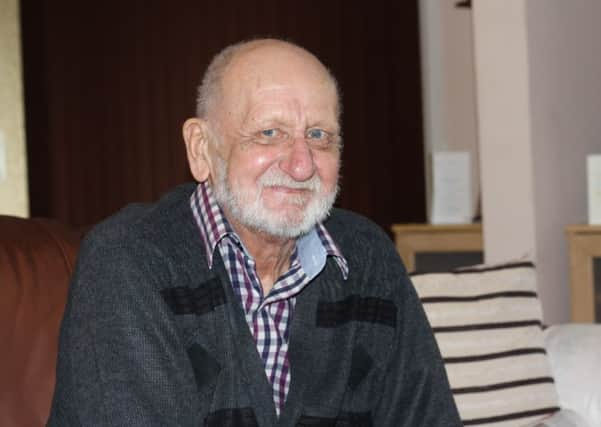Warning as people living in Hull are twice as likely to die from lung cancer


LUNG cancer patient Barry Garton is urging people to stop smoking as it was revealed that twice as many people in Hull are likely to die from the disease than the rest of the country.
Barry, a former private hire driver from the city, is currently recovering from a course of radiotherapy after a tumour was found in one of his bronchial tubes, the two airways that carry air in and out of the lungs.
Advertisement
Hide AdAdvertisement
Hide AdHe is now urging young people to think twice about smoking as part of Lung Cancer Awareness Month, which runs throughout November.
Twenty seven per cent of people living in the Hull area are smokers – significantly more than the English average of 17 per cent.
Nearly nine in 10 cases of lung cancer are caused by smoking. People in Hull are almost twice as likely to die from lung cancer than people in England as a whole.
“I started smoking when I was about 12,” says Barry, 72.
“Everybody smoked then, it was the norm. I was smoking about 20 a day at one point, then I was diagnosed with COPD (chronic obstructive pulmonary disease) and I cut down to three or four a day.
Advertisement
Hide AdAdvertisement
Hide Ad“Since being diagnosed with lung cancer, I’ve stopped smoking completely.
“I feel like saying to young kids, ‘If you want to finish up like I am carry on, but my recommendation is stop smoking’.”
Barry was diagnosed with COPD two years ago after experiencing difficulties breathing. During a check-up in May, he was told his illness had worsened.
He was advised to go to the hospital for a chest x-ray, but he put it off. The nurse advised him to stop smoking altogether, so he began using e-cigarettes.
Advertisement
Hide AdAdvertisement
Hide AdIn July Barry suffered a mini stroke, which is also called a Transient Ischaemic Attack or TIA. His doctor managed to persuade him to have the x-ray and it was then that his lung cancer was detected. The images showed that one of his lungs had completely collapsed.
“I suspected it. I wasn’t really surprised. I’d lost two stone in weight and my breathing had got worse. My family felt guilty because they had pushed me into having the x-ray, but I know I should have done what I was told and gone sooner,” says Barry.
“I was worried I wouldn’t be able to walk from my car to the clinic as my breathing was so bad. But maybe I also put it off because I was in denial. People are still frightened of the word ‘cancer’. It’s not something you want to be told you have.”
Barry began a course of chemotherapy at Castle Hill Hospital, but it was cut short when he had a bad reaction to the treatment. The platelet count in his bone marrow dropped dangerously low and he was given two platelet transfusions.
Advertisement
Hide AdAdvertisement
Hide AdPlatelets are cells in blood which form clots to help stop bleeding, and doctors believe Barry’s bad reaction was due to taking blood thinners following his TIA.
With chemotherapy no longer an option, Barry underwent five consecutive days of radiotherapy, and had 2.8 litres of fluid drained from his lung.
“Before they drained my lung I couldn’t do a lot. I couldn’t get up the stairs without taking a break because I couldn’t breathe. I didn’t feel like driving and if I did I would just take my wife to the shops and sit in the car.
“Now I can drive my car and walk around the shops. There’s been a massive improvement and I’ve got my life back a little bit. The care I’ve had has been absolutely brilliant.”
Advertisement
Hide AdAdvertisement
Hide AdBarry is now looking forward to enjoying Christmas with his family before he returns to hospital in January for an update on his future treatment options.
His experience of living with cancer is currently being tracked through questionnaires and in-depth interviews as part of a Yorkshire Cancer Research investigation into cancer inequalities in Hull and East Yorkshire, led by Professor Una Macleod at the Hull York Medical School.
The five-year project, funded by a £750,000 award from the charity, aims to improve the early recognition of people with cancer, reduce the number of people diagnosed as an emergency and determine the needs of all advanced cancer patients so that they receive appropriate care in the most appropriate place.
“If I can help other people with my experience that would be a good thing. I’m glad I had an x-ray when I did but I should have gone sooner. If anyone else is experiencing symptoms of lung cancer then I would recommend they go to the doctor, the earlier the better.”
For more information visit yorkshirecancerresearch.org.uk